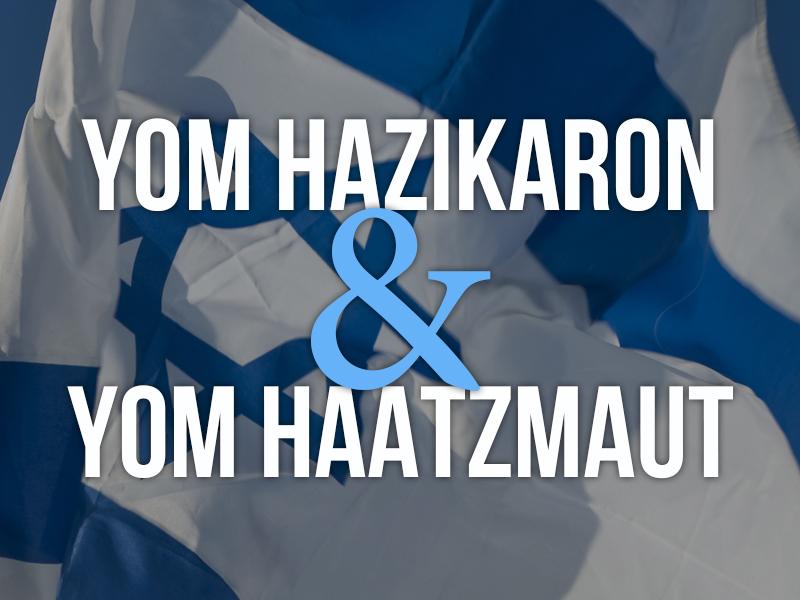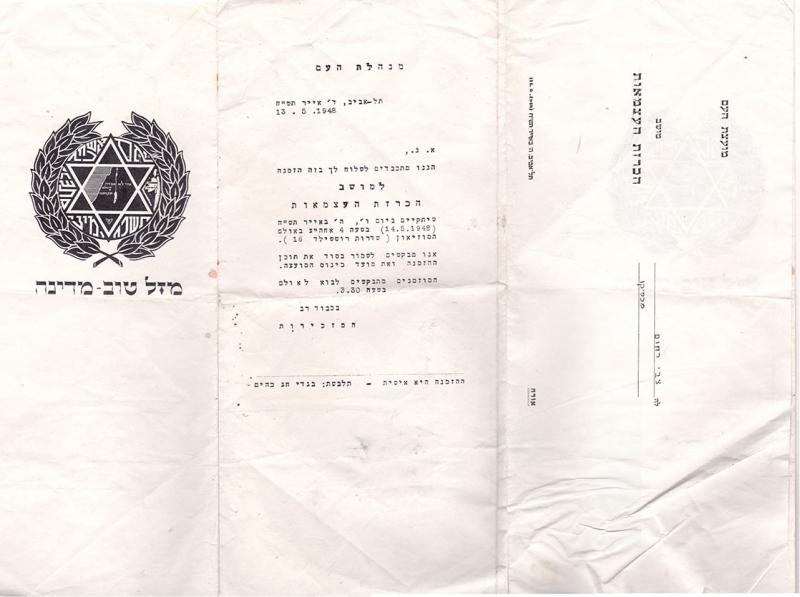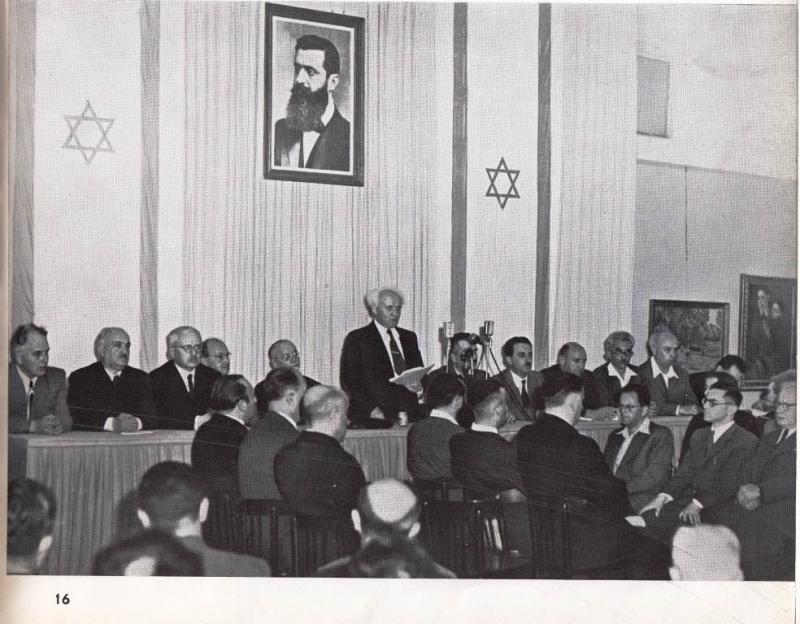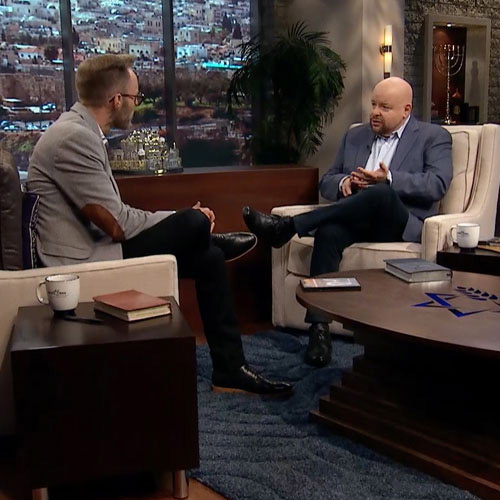Pastor Stovall Weems & Paul Wilbur | An Encounter with Jesus, Part 1


Last week Israeli voters reelected Benjamin Netanyahu as prime minister of Israel.
After an election cycle steeped in controversy and a victory of slim margins, Israel – and even the world – is watching as Prime Minister Netanyahu builds his new coalition and what that may mean for the future of Israel’s government.
Many in Israel are predicting a similar coalition as the Prime Minister’s previous one. And they have also further stated doing so could complicate Israel’s relationship with the U.S. – both politically and with Jewish communities within the U.S
Do you want to know how to pray for Israel in greater detail and depth? Jewish Voice Ministries has put together this Intercessory Prayer Guide for Israel that provides focused, targeted requests to help you pray for the nation of God’s People. We hope this prayer guide can help both Messianic Jews and Christians pray their support for Israel.
Such a coalition of right-wing and religious parties would ultimately push Israel further to the right. And while it would strengthen Israel’s relationship with the current administration, it would weaken bipartisan support for Israel in Washington.
With a coalition consisting of many of the ultra-Orthodox parties, it’s expected they’ll have great influence over religious policies. This will set the stage for continued tension with the non-Orthodox streams of Judaism, the Jewish state and the largest Jewish community outside of it.
In his acceptance speech after learning of his reelection, Netanyahu declared, "I want all parts of Israeli society, Jews and non-Jews, to be part of the great success story called Israel. I believe there is a great opening for the future here, a great opening for hope.”
While the future isn’t clear, we know that God is always in control.We believe all things work together according to His purpose and in His time.
But what should be clear is for all of us to pray:
But in addition to your prayers, I’d also like to invite you to give. Even as I write, our ministries on the ground in Israel are actively working towards peace.
Whether it’s through providing survival resources to the “least of these,” supporting Holocaust victims or partnering with Messianic congregations – all our efforts are done in the name and through the power of Yeshua (Jesus).
And more than just providing immediate help, these outreaches and ministries are the greatest means we have to build relationships with the Jewish people that give us the opportunity to share the Good News. So if you feel led, please give your most generous gift now.

It was supposed to be a secret. Three hundred and fifty invitations had been sent for the momentous occasion held at a Tel Aviv museum. But word spread, and crowds gathered outside, singing in the streets. They sang words written some 70 years before, words that had become a part of their very lives and were the passion of their hearts. They sang of a specific hope.
An invitation to Israel's declaration of independence event on May 14, 1948. Dated May 13, 1948, the simple invitation asks attendees to keep the event secret and dress in dark-colored formal attire. This invitation is addressed to Tzvi Rachum of Mexico.

It was May 14, 1948. Inside the museum, David Ben-Gurion stood before members of the Jewish People’s Council and read The Declaration of the Establishment of the State of Israel.
The document officially commencing the new and sovereign Israel outlines the founding principles upon which the state was formed. It declares that the State of Israel will:
be open for Jewish immigration and for the Ingathering of the Exiles
foster the development of the country for the benefit of all its inhabitants
be based on freedom, justice and peace as envisaged by the prophets of Israel
ensure complete equality of social and political rights to all its inhabitants irrespective of religion, race or sex
guarantee freedom of religion, conscience, language, education and culture
safeguard the Holy Places of all religions

Israel’s Declaration of Independence asks peace from its Arab inhabitants:
“We appeal - in the very midst of the onslaught launched against us now for months – to the Arab inhabitants of the State of Israel to preserve peace and participate in the upbuilding of the State on the basis of full and equal citizenship and due representation in all its provisional and permanent institutions.”

Despite hostilities against her, the new Jewish State was determined to work with neighboring nations for the good of the region.
“We extend our hand to all neighbouring states and their peoples in an offer of peace and good neighbourliness and appeal to them to establish bonds of cooperation and mutual help with the sovereign Jewish people settled in its own land. The State of Israel is prepared to do its share in a common effort for the advancement of the entire Middle East.”
Israel opened its doors to Jewish people from all over the world and sought their help in building up and strengthening the fledgling state.
“We appeal to the Jewish people throughout the Diaspora to rally round the Jews of Eretz-Israel [the Land of Israel] in the tasks of immigration and upbuilding and to stand by them in the great struggle for the realization of the age-old dream - the redemption of Israel.”
“Accordingly we, members of the People's Council, representatives of the Jewish Community of Eretz-Israel and of the Zionist Movement, are here assembled on the day of the termination of the British Mandate over Eretz-Israel and, by virtue of our natural and historic right and on the strength of the resolution of the United Nations General Assembly, hereby declare the establishment of a Jewish state in Eretz-Israel, to be known as the State of Israel.”
Ever since moving to the Land in 1906, David Ben-Gurion had worked toward this day. After he read the Declaration to the group assembled there in Tel Aviv that night, he and 36 others signed the document. And Israel was reborn.
“Placing our trust in the Almighty, we affix our signatures to this proclamation at this session of the Provisional Council of State, on the soil of the Homeland, in the city of Tel-Aviv, on this Sabbath eve, the 5th day of Iyar, 5708 (14th May, 1948).”
The entire ceremony lasted a mere 32 minutes. The hope of 2,000 years had come true. And people danced in the streets as they sang Hatikvah, the song destined to become Israel’s national anthem.
This year, Israel celebrates its 71st anniversary. The 5th of Iyar of the Hebrew calendar begins on the evening of May 8 on the 2019 Gregorian calendar and ends at sundown on May 9. Israel Independence Day is known as Yom HaAtzmaut (YOHM Ha-AHTZ-mah-OOT) in Hebrew. It is a national holiday in Israel and a day filled with family gatherings, recreation, public events and celebrations.
Study the Torah the first five books of the Bible through the eyes of a first-century disciple. “Teachings of the Torah” invites you into the questions, stories, and interpretations that prove the Bible is a living book.

In the Passover Seder, the unleavened bread is called The “Bread of Our Affliction.” It is to remind us of how the people of Israel suffered during their slavery in Egypt. They bore painful sorrows in their hearts and heavy burdens on their backs.
Today, our physical burdens may not be as substantial as those of Israel in Egypt, but each one of us bears burdens of the heart. Loss, illness, rejection, physical pain, sorrow – there are plenty of “afflictions” to go around in a world tainted by sin and death. But Yeshua (Jesus) knows the load you carry. And He knows what it’s like to be afflicted.
“Surely He has borne our griefs and carried our pains. Yet we esteemed Him stricken, struck by God, and afflicted.”
―Isaiah 53:4
He knows what it’s like to be tempted too.
“For we do not have a kohen gadol (high priest) who is unable to sympathize with our weaknesses, but One who has been tempted in all the same ways – yet without sin.”
―Hebrews 4:15
Hebrews chapter four goes on to say, “Therefore, let us draw near to the throne of grace with boldness so that we may receive mercy and find grace for help in time of need” (Hebrews 4:16). Yeshua is there for you when you go through the tough times of life. He is there to help carry the loads too heavy for you.
He knows the limits of your strength (Psalm 103:14), and He is ready to supply you with His (Philippians 4:13). Cast your worries and the weight of your burdens upon Him, because He loves you (1 Peter 5:7).
Go to Him today with anything troubling you, and thank Him for His immeasurable understanding and love.
Thank You, Yeshua, that You know me so well, including my hurts and my limits. Thank You for welcoming my cares and worries and for letting me cast them on You. Thank You for helping me through the hard things this life throws at me. Thank You that You never leave me but are always with me to love and strengthen me. Thank You for entering into my sufferings in this life by enduring Your own afflictions. Thank You for loving me that much.
This enlightening infographic will teach you the meaning of the Passover seder plate, the elements to include and the significance behind them.
On that long ago night when God’s final plague swept through the land of Egypt, the angel of death came to take the firstborn of all families. But when he saw the blood of the Passover lamb on the doorframes of the Jewish homes, he passed over and spared them the sorrow of death. Only those homes not covered by the sacrificed blood endured death.
What a vivid picture this is of how Yeshua’s (Jesus’) blood, poured out and sacrificed for us, covers our sin and protects us from spiritual death. The Apostle Paul proclaimed Yeshua is our Passover Lamb (1 Corinthians 5:7). Jesus made the once-and-for-all sacrifice for our sin (Hebrews 9:12, Hebrews 10:10) and has saved us out of death and into life (John 5:24).
Take some time today to reflect on the wonder of God’s plan of redemption and His placing a foreshadow of Jesus inside the already profound watershed events of Passover.
God, thank You for rescuing Israel out of slavery so long ago. Yeshua, You are our Passover Lamb – perfect, spotless and sacrificed for us. My sin comes with a cost, and Yeshua, You paid it for me. Like the lamb that Passover night, You gave your blood as a covering for sin – my sin. Because of You, death has passed over me, and I have eternal life. By Your death, I am spared what my sin deserves. When the Father looks at all who believe in You, Jesus, He sees not the stains of our sin, but Your blood – declaring us righteous, rescuing us from spiritual death, and securing our eternal hope. Yeshua, how can I thank You enough?
This enlightening infographic will teach you the meaning of the Passover seder plate, the elements to include and the significance behind them.
At Passover, God was setting things up to introduce Israel to an entirely new future. He was in the process of freeing the Jewish people from 400 years of slavery. He had a plan for them, and He was bringing it about. They eagerly expected Him to unfold His plan and make it their reality.
Jeremiah 29:11 was spoken to Israel as a nation, but it encourages us as Believers in Yeshua (Jesus) that God has a plan for each of us individually as well – a good plan, to give us a hope and a future. We can look ahead and know that God has good things in mind for us.
He doesn’t unfold our future all at once. He wants us to trust Him along the way. Sometimes, His plans don’t line up with what we have in mind, and when we believe Him, we experience new depths of His love for us.
God knows and loves you completely. He knows the plans He has for you, and He promises they are good, for your welfare, not for calamity. Believing Him in this generates a watchful hope. Draw close to Him today, and listen for His leading into the good future He has in store for you. Lay your dreams and needs before Him, and see what He will do.
Father, it is so exciting to think that You have good plans for me. Thank You so much. Give me an expectant heart that trusts in You as I travel the road to the fulfillment of those plans. Help me draw close to You and observe with a grateful heart every part of the journey – even the bumps and unexpected turns. May I always give You my praise, trust and obedience as You continue to unfold Your purposes for my life.
In this inspirational DVD, filmed on location in Jerusalem in the Upper Room, Rabbi Jonathan Bernis teaches us how to observe the rich traditions of the Passover Seder — just as Yeshua (Jesus) did with His disciples over 2,000 years ago, known as the Last Supper.
We are in the midst of the Feast of Unleavened Bread that follows Passover night. For seven days, Jewish people are to eat nothing containing leaven (such as yeast and baking soda). The day before Passover, Jewish people search through the entire house to remove all leaven. Every cupboard, drawer, nook and cranny is examined, and some families have even used a feather to clean out every last crumb.
In the New Covenant, leaven is a metaphor for sin. “Do you not know that a little leaven leavens the whole lump of dough?” the apostle Paul asks (1 Corinthians 5:6).
It is wonderful to know God loves us unconditionally and generously forgives our failures. When it comes to sin, as Believers in Messiah, we are no longer condemned, but we are called to grow and become more like Yeshua (Jesus) day by day. As we do, we bring Him glory and are used to draw people to Him. Sin gets in the way, and it also hinders the fullness of life in us Jesus died to provide (Hebrews 12:1).
Recognizing personal wrongdoing is a continual pursuit in the Believer’s life. In Psalm 139, David cried out “Search me, O God, and know my heart. Examine me and know my anxious thoughts, and see if there is any offensive way in me, and lead me in the way everlasting” (Psalm 139:23–24).
It’s not pleasant to see our own sin and weaknesses. But, as Believers, we can count on the fact that God’s love for us does not change when He searches our hearts and points out remaining leaven.
Let this week of the Feast of Unleavened Bread motivate you to invite God to search your heart and reveal any “hurtful way” (NASB) in you He would like to show you. As you do, you can be on your way to stepping out of sin’s entrapments and into greater freedom.
Father, I know You love me. Give me the courage to see my sin. Search me, O God, and show me any hurtful, offensive ways that You want to remove from my life. Cleanse me, O God, so I can be free of the sin that hinders me. Free me to love You and reflect You more today.
This enlightening infographic will teach you the meaning of the Passover seder plate, the elements to include and the significance behind them.